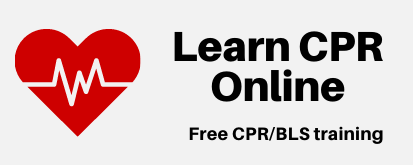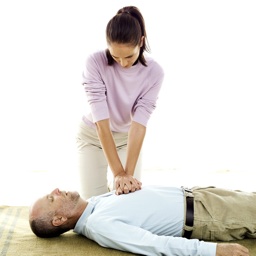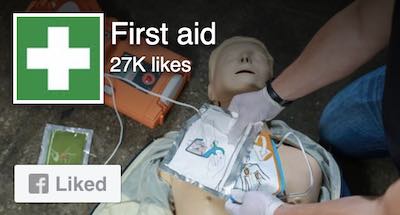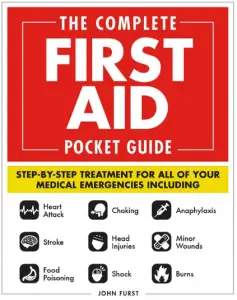/* LOADER */
.ml-form-embedSubmitLoad {
display: inline-block;
width: 20px;
height: 20px;
}
.ml-form-embedSubmitLoad:after {
content: " ";
display: block;
width: 11px;
height: 11px;
margin: 1px;
border-radius: 50%;
border: 4px solid #fff;
border-color: #ffffff #ffffff #ffffff transparent;
animation: ml-form-embedSubmitLoad 1.2s linear infinite;
}
@keyframes ml-form-embedSubmitLoad {
0% {
transform: rotate(0deg);
}
100% {
transform: rotate(360deg);
}
}
#mlb2-957692.ml-form-embedContainer {
box-sizing: border-box;
display: table;
height: 100%;
margin: 0 auto;
position: static;
width: 100% !important;
}
#mlb2-957692.ml-form-embedContainer h4,
#mlb2-957692.ml-form-embedContainer p,
#mlb2-957692.ml-form-embedContainer span,
#mlb2-957692.ml-form-embedContainer button {
text-transform: none !important;
letter-spacing: normal !important;
}
#mlb2-957692.ml-form-embedContainer .ml-form-embedWrapper {
background-color: #f6f6f6;
border-width: 0px;
border-color: #e6e6e6;
border-radius: 4px;
border-style: solid;
box-sizing: border-box;
display: inline-block !important;
margin: 0;
padding: 0;
position: relative;
}
#mlb2-957692.ml-form-embedContainer .ml-form-embedWrapper.embedPopup,
#mlb2-957692.ml-form-embedContainer .ml-form-embedWrapper.embedDefault { width: 400px; }
#mlb2-957692.ml-form-embedContainer .ml-form-embedWrapper.embedForm { max-width: 400px; width: 100%; }
#mlb2-957692.ml-form-embedContainer .ml-form-align-left { text-align: left; }
#mlb2-957692.ml-form-embedContainer .ml-form-align-center { text-align: center; }
#mlb2-957692.ml-form-embedContainer .ml-form-align-default { display: table-cell !important; vertical-align: middle !important; text-align: center !important; }
#mlb2-957692.ml-form-embedContainer .ml-form-align-right { text-align: right; }
#mlb2-957692.ml-form-embedContainer .ml-form-embedWrapper .ml-form-embedHeader img {
border-top-left-radius: 4px;
border-top-right-radius: 4px;
height: auto;
width: 100%;
}
#mlb2-957692.ml-form-embedContainer .ml-form-embedWrapper .ml-form-embedBody,
#mlb2-957692.ml-form-embedContainer .ml-form-embedWrapper .ml-form-successBody {
padding: 20px 20px 0 20px;
}
#mlb2-957692.ml-form-embedContainer .ml-form-embedWrapper .ml-form-embedBody.ml-form-embedBodyHorizontal {
padding-bottom: 0;
}
#mlb2-957692.ml-form-embedContainer .ml-form-embedWrapper .ml-form-embedBody .ml-form-embedContent,
#mlb2-957692.ml-form-embedContainer .ml-form-embedWrapper .ml-form-successBody .ml-form-successContent {
margin: 0 0 20px 0;
}
#mlb2-957692.ml-form-embedContainer .ml-form-embedWrapper .ml-form-embedBody .ml-form-embedContent h4,
#mlb2-957692.ml-form-embedContainer .ml-form-embedWrapper .ml-form-successBody .ml-form-successContent h4 {
color: #000000;
font-family: 'Open Sans', Arial, Helvetica, sans-serif;
font-size: 30px;
font-weight: 400;
margin: 0 0 10px 0;
text-align: left;
}
#mlb2-957692.ml-form-embedContainer .ml-form-embedWrapper .ml-form-embedBody .ml-form-embedContent p,
#mlb2-957692.ml-form-embedContainer .ml-form-embedWrapper .ml-form-successBody .ml-form-successContent p {
color: #000000;
font-family: 'Open Sans', Arial, Helvetica, sans-serif;
font-size: 14px;
font-weight: 400;
margin: 0 0 10px 0;
text-align: left;
}
#mlb2-957692.ml-form-embedContainer .ml-form-embedWrapper .ml-form-embedBody .ml-form-embedContent ul,
#mlb2-957692.ml-form-embedContainer .ml-form-embedWrapper .ml-form-embedBody .ml-form-embedContent ol,
#mlb2-957692.ml-form-embedContainer .ml-form-embedWrapper .ml-form-successBody .ml-form-successContent ul,
#mlb2-957692.ml-form-embedContainer .ml-form-embedWrapper .ml-form-successBody .ml-form-successContent ol {
color: #000000;
font-family: 'Open Sans', Arial, Helvetica, sans-serif;
font-size: 14px;
}
#mlb2-957692.ml-form-embedContainer .ml-form-embedWrapper .ml-form-embedBody .ml-form-embedContent p a,
#mlb2-957692.ml-form-embedContainer .ml-form-embedWrapper .ml-form-successBody .ml-form-successContent p a {
color: #000000;
text-decoration: underline;
}
#mlb2-957692.ml-form-embedContainer .ml-form-embedWrapper .ml-form-embedBody .ml-form-embedContent p:last-child,
#mlb2-957692.ml-form-embedContainer .ml-form-embedWrapper .ml-form-successBody .ml-form-successContent p:last-child {
margin: 0;
}
#mlb2-957692.ml-form-embedContainer .ml-form-embedWrapper .ml-form-embedBody form {
margin: 0;
width: 100%;
}
#mlb2-957692.ml-form-embedContainer .ml-form-embedWrapper .ml-form-embedBody .ml-form-formContent,
#mlb2-957692.ml-form-embedContainer .ml-form-embedWrapper .ml-form-embedBody .ml-form-checkboxRow {
margin: 0 0 20px 0;
width: 100%;
}
#mlb2-957692.ml-form-embedContainer .ml-form-embedWrapper .ml-form-embedBody .ml-form-formContent.horozintalForm {
margin: 0;
padding: 0 0 20px 0;
}
#mlb2-957692.ml-form-embedContainer .ml-form-embedWrapper .ml-form-embedBody .ml-form-fieldRow {
margin: 0 0 10px 0;
width: 100%;
}
#mlb2-957692.ml-form-embedContainer .ml-form-embedWrapper .ml-form-embedBody .ml-form-fieldRow.ml-last-item {
margin: 0;
}
#mlb2-957692.ml-form-embedContainer .ml-form-embedWrapper .ml-form-embedBody .ml-form-fieldRow.ml-formfieldHorizintal {
margin: 0;
}
#mlb2-957692.ml-form-embedContainer .ml-form-embedWrapper .ml-form-embedBody .ml-form-fieldRow input {
background-color: #ffffff;
color: #333333;
border-color: #cccccc;
border-radius: 4px;
border-style: solid;
border-width: 1px;
font-size: 14px;
line-height: 20px;
padding: 10px 10px;
width: 100%;
box-sizing: border-box;
max-width: 100%;
}
#mlb2-957692.ml-form-embedContainer .ml-form-embedWrapper .ml-form-embedBody .ml-form-fieldRow input::-webkit-input-placeholder { color: #333333; }
#mlb2-957692.ml-form-embedContainer .ml-form-embedWrapper .ml-form-embedBody .ml-form-fieldRow input::-moz-placeholder { color: #333333; }
#mlb2-957692.ml-form-embedContainer .ml-form-embedWrapper .ml-form-embedBody .ml-form-fieldRow input:-ms-input-placeholder { color: #333333; }
#mlb2-957692.ml-form-embedContainer .ml-form-embedWrapper .ml-form-embedBody .ml-form-fieldRow input:-moz-placeholder { color: #333333; }
#mlb2-957692.ml-form-embedContainer .ml-form-embedWrapper .ml-form-embedBody .ml-form-horizontalRow {
height: 42px;
}
.ml-form-formContent.horozintalForm .ml-form-horizontalRow .ml-input-horizontal { width: 70%; float: left; }
.ml-form-formContent.horozintalForm .ml-form-horizontalRow .ml-button-horizontal { width: 30%; float: left; }
.ml-form-formContent.horozintalForm .ml-form-horizontalRow .horizontal-fields { box-sizing: border-box; float: left; padding-right: 10px; }
#mlb2-957692.ml-form-embedContainer .ml-form-embedWrapper .ml-form-embedBody .ml-form-horizontalRow input {
background-color: #ffffff;
color: #333333;
border-color: #cccccc;
border-radius: 4px;
border-style: solid;
border-width: 1px;
font-size: 14px;
line-height: 20px;
padding: 10px 10px;
width: 100%;
box-sizing: border-box;
}
#mlb2-957692.ml-form-embedContainer .ml-form-embedWrapper .ml-form-embedBody .ml-form-horizontalRow button {
background-color: #000000;
border-color: #000000;
border-style: solid;
border-width: 1px;
border-radius: 4px;
box-shadow: none;
color: #ffffff !important;
font-family: 'Open Sans', Arial, Helvetica, sans-serif;
font-size: 14px !important;
font-weight: 700;
line-height: 20px;
padding: 10px !important;
width: 100%;
}
#mlb2-957692.ml-form-embedContainer .ml-form-embedWrapper .ml-form-embedBody .ml-form-horizontalRow button:hover {
background-color: #333333;
border-color: #333333;
}
#mlb2-957692.ml-form-embedContainer .ml-form-embedWrapper .ml-form-embedBody .ml-form-checkboxRow input[type="checkbox"] {
display: inline-block;
float: left;
margin: 1px 0 0 0;
opacity: 1;
visibility: visible;
appearance: checkbox !important;
-moz-appearance: checkbox !important;
-webkit-appearance: checkbox !important;
position: relative;
height: 14px;
width: 14px;
}
#mlb2-957692.ml-form-embedContainer .ml-form-embedWrapper .ml-form-embedBody .ml-form-checkboxRow .label-description {
color: #000000;
display: block;
font-family: 'Open Sans', Arial, Helvetica, sans-serif;
font-size: 12px;
text-align: left;
padding-left: 25px;
}
#mlb2-957692.ml-form-embedContainer .ml-form-embedWrapper .ml-form-embedBody .ml-form-checkboxRow label {
font-weight: normal;
margin: 0;
padding: 0;
}
#mlb2-957692.ml-form-embedContainer .ml-form-embedWrapper .ml-form-embedBody .ml-form-checkboxRow label a {
color: #000000;
text-decoration: underline;
}
#mlb2-957692.ml-form-embedContainer .ml-form-embedWrapper .ml-form-embedBody .ml-form-checkboxRow label p {
color: #000000 !important;
font-family: 'Open Sans', Arial, Helvetica, sans-serif !important;
font-size: 12px !important;
line-height: 18px !important;
margin: 0 5px 0 0;
}
#mlb2-957692.ml-form-embedContainer .ml-form-embedWrapper .ml-form-embedBody .ml-form-checkboxRow label p:first-letter {
color: #000000 !important;
font-family: 'Open Sans', Arial, Helvetica, sans-serif !important;
font-size: 12px !important;
font-weight: normal !important;
line-height: 18px !important;
padding: 0 !important;
}
#mlb2-957692.ml-form-embedContainer .ml-form-embedWrapper .ml-form-embedBody .ml-form-checkboxRow label p:last-child {
margin: 0;
}
#mlb2-957692.ml-form-embedContainer .ml-form-embedWrapper .ml-form-embedBody .ml-form-embedSubmit {
margin: 0 0 20px 0;
}
#mlb2-957692.ml-form-embedContainer .ml-form-embedWrapper .ml-form-embedBody .ml-form-embedSubmit button {
background-color: #000000;
border: none;
border-radius: 4px;
box-shadow: none;
color: #ffffff !important;
font-family: 'Open Sans', Arial, Helvetica, sans-serif;
font-size: 14px !important;
font-weight: 700;
line-height: 20px;
padding: 10px !important;
width: 100%;
box-sizing: border-box;
}
#mlb2-957692.ml-form-embedContainer .ml-form-embedWrapper .ml-form-embedBody .ml-form-embedSubmit button:hover {
background-color: #333333;
}
.ml-subscribe-close {
width: 30px;
height: 30px;
background: url(https://bucket.mlcdn.com/images/default/modal_close.png) no-repeat;
background-size: 30px;
cursor: pointer;
margin-top: -10px;
margin-right: -10px;
position: absolute;
top: 0;
right: 0;
}
.ml-error input {
background: url(https://bucket.mlcdn.com/images/default/error-icon.png) 98% center no-repeat #ffffff !important;
background-size: 24px 24px !important;
}
.ml-error .label-description {
color: #ff0000 !important;
}
.ml-error .label-description p {
color: #ff0000 !important;
}
#mlb2-957692.ml-form-embedContainer .ml-form-embedWrapper .ml-form-embedBody .ml-form-checkboxRow.ml-error .label-description p,
#mlb2-957692.ml-form-embedContainer .ml-form-embedWrapper .ml-form-embedBody .ml-form-checkboxRow.ml-error .label-description p:first-letter {
color: #ff0000 !important;
}
@media only screen and (max-width: 400px){
.ml-form-embedWrapper.embedDefault, .ml-form-embedWrapper.embedPopup { width: 100%!important; }
.ml-form-formContent.horozintalForm { float: left!important; }
.ml-form-formContent.horozintalForm .ml-form-horizontalRow { height: auto!important; width: 100%!important; float: left!important; }
.ml-form-formContent.horozintalForm .ml-form-horizontalRow .ml-input-horizontal { width: 100%!important; }
.ml-form-formContent.horozintalForm .ml-form-horizontalRow .ml-input-horizontal > div { padding-right: 0px!important; padding-bottom: 10px; }
.ml-form-formContent.horozintalForm .ml-button-horizontal { width: 100%!important; }
}
.ml-mobileButton-horizontal { display: none; }
.ml-mobileButton-horizontal button {
background-color: #000000;
border-color: #000000;
border-style: solid;
border-width: 1px;
border-radius: 4px;
box-shadow: none;
color: #ffffff !important;
font-family: 'Open Sans', Arial, Helvetica, sans-serif;
font-size: 14px !important;
font-weight: 700;
line-height: 20px;
padding: 10px !important;
width: 100%;
}
@media only screen and (max-width: 400px) {
#mlb2-957692.ml-form-embedContainer .ml-form-embedWrapper .ml-form-embedBody .ml-form-formContent.horozintalForm {
padding: 0 0 10px 0 !important;
}
.ml-hide-horizontal { display: none !important; }
.ml-mobileButton-horizontal { display: block !important; margin-bottom: 20px; }
.ml-form-formContent.horozintalForm .ml-form-horizontalRow .ml-input-horizontal > div { padding-bottom: 0px !important; }
}
@media only screen and (max-width: 400px) {
.ml-form-formContent.horozintalForm .ml-form-horizontalRow .horizontal-fields {
margin-bottom: 10px !important;
width: 100% !important;
}
}
function ml_webform_success_957692() {
var $ = ml_jQuery || jQuery;
$('.ml-subscribe-form-957692 .row-success').show();
$('.ml-subscribe-form-957692 .row-form').hide();
}
The short answer – it might do cardiac arrest .
A cardiac arrest occurs when the victim’s heart stops beating in a coordinated way. This means the heart stops pumping blood around the body. No blood flow is catastrophic for the body’s organs, especially the brain and the heart. Permanent damage to brain cells and brain death starts to occur after approximately two minutes (only 120 seconds!)
CPR works by pushing blood around the body to keep the brain and vital organs alive. CPR alone is very unlikely to restart the victim’s heart . Therefore, CPR alone is unlikely to revive a victim of sudden cardiac arrest. These victims require urgent defibrillation. A defibrillator delivers a controlled electrical shock to enable the heart to start pumping again.
However, the chances of a defibrillator working decrease dramatically if a victim does not receive immediate CPR following the cardiac arrest.
CPR works to buy time and keep the victim’s vital organs supplied with blood until the arrival of a defibrillator.
So although CPR might not actually “revive” someone instantaneously, it plays a vital role in giving a victim of cardiac arrest the best chance of survival.
You can play your part by becoming certified in CPR and First Aid. Sign up to a class in your local area or have a go at one of our online CPR classes to refresh your knowledge.





